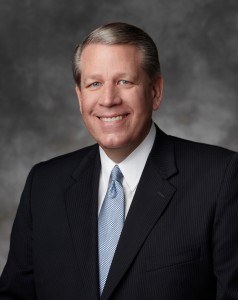Modifications to the Church Educational System’s curriculum have created quite a stir, eliciting responses from BYU faculty, students and observers. CES and BYU religious education leaders respond by saying changes will only add opportunities for students to learn and deepen gospel discipleship.

Responses to the changes, on and off campus, include support as well as concerns that gospel scholarship will decline. The discussion has been picked up by news media and online discussion sites that speculate on the learning outcomes of the announced changes.
Elder Paul V. Johnson, commissioner for the Church Educational System, officially announced the changes in a CES devotional Nov. 2.
All Church universities and Institutes of Religion will offer four new courses beginning in the fall of 2015. Each class will be centered in the scriptures and the teachings of latter-day prophets. They will focus on the Savior, his doctrine and significant events in Church history.
“These new courses are intended to be cornerstones of your religious education experience,” Elder Johnson said in the devotional.
Chad Webb, managing director of Seminaries and Institutes, said in an interview with The Universe Nov. 3 that the change is the result of a collective effort to help young people love and better understand each book of scripture and learn how to apply gospel principles in a way relevant to their needs.
“I imagine that concerns (about the new curriculum) are based on a love of the scriptures and a desire to help young people understand them,” Webb said. “I certainly share that desire.”
Brent Top, dean of BYU’s School of Religious Education, told The Universe the new courses will be offered to all BYU students. Current students will be under the present graduation requirements. Incoming freshmen, beginning Fall Semester 2015, will need to choose the new courses to complete their cornerstone requirements, he said.
“We aren’t taking anything away; we are adding flexibility,” Top said. “We trust that students can make the best class choices to meet their needs.”
Changes in the Church Educational System may be connected to new seminary requirements and the change in missionary age. One aim of the new CES curriculum is to maximize use of classroom time by recognizing the things students already know and building upon them, Webb said.
“We raised the bar (in seminary) with expectations to read all volumes of scripture and pass a learning assessment,” Webb said. “Students can now focus on principles because they already have an understanding of people and events.”
Top echoed similar sentiments.
“In Religious Education we’ve been talking for five years or more on how we can better meet the needs of students,” Top said. “With the change in missionary age and increased expectations in the seminary program, we realized our students would come to BYU and religion classes with a stronger foundation in the scriptures.”
BYU faculty members are in the process of course development for the new curriculum, which will be be approved through established university processes, Top said.
“We are pleased with the open discussion that is taking place on this important initiative,” Top said. “We believe this will be a great blessing to students.”
See The Universe’s complete interview with Brent Top.




